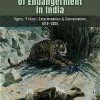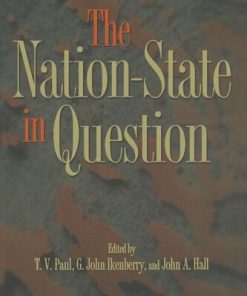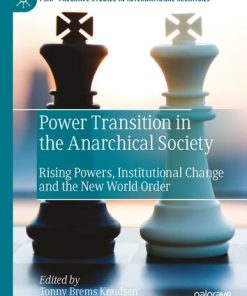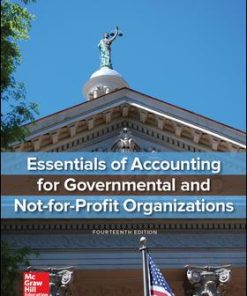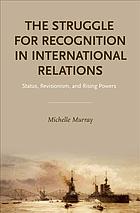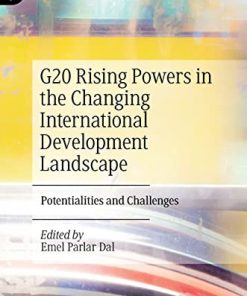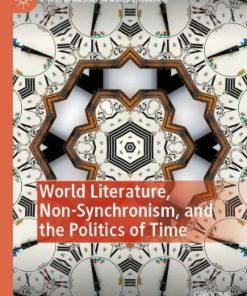(EBook PDF) Contested World Orders Rising Powers Non Governmental Organizations and the Politics of Authority Beyond the Nation State 1st edition by Matthew Stephen, Michael Zürn 0192580973 9780192580979 full chapters
$50.00 Original price was: $50.00.$25.00Current price is: $25.00.
Contested World Orders: Rising Powers, Non-Governmental Organizations, and the Politics of Authority Beyond the Nation-State 1st edition by Matthew D. Stephen, Michael Zürn – Ebook PDF Instant Download/DeliveryISBN: 0192580973, 9780192580979
Full download Contested World Orders: Rising Powers, Non-Governmental Organizations, and the Politics of Authority Beyond the Nation-State 1st edition after payment
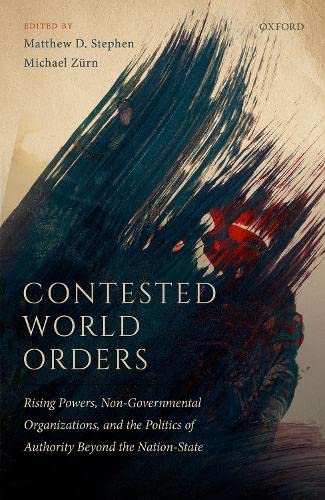
Product details:
ISBN-10 : 0192580973
ISBN-13 : 9780192580979
Author: Matthew D. Stephen, Michael Zürn
World orders are increasingly contested. As international institutions have taken on ever more ambitious tasks, they have been challenged by rising powers dissatisfied with existing institutional inequalities, by non-governmental organizations worried about the direction of global governance, and even by some established powers no longer content to lead the institutions they themselves created. For the first time, this volume examines these sources of contestation under a common and systematic institutionalist framework. While the authority of institutions has deepened, at the same time it has fuelled contestation and resistance. In a series of rigorous and empirically revealing chapters, the authors of Contested World Orders examine systematically the demands of key actors in the contestation of international institutions. Ranging in scope from the World Trade Organization and the Nuclear Non-proliferation Regime to the Kimberley Process on conflict diamonds and the climate finance provisions of the UNFCCC, the chapters deploy a variety of methods to reveal just to what extent, and along which lines of conflict, rising powers and NGOs contest international institutions. Contested World Orders seeks answers to the key questions of our time: Exactly how deeply are international institutions contested? Which actors seek the most fundamental changes? Which aspects of international institutions have generated the most transnational conflicts? And what does this mean for the future of world order?
Contested World Orders: Rising Powers, Non-Governmental Organizations, and the Politics of Authority Beyond the Nation-State 1st Table of contents:
1 Rising Powers, NGOs, and Demands for New World Orders: An Introduction
1. Introduction
2. Studying Contested World Orders
3. Mapping Demands of Rising Powers and NGOs Towards IOs
4. Propositions
5. Research Design
6. Guide to the Chapters
Part I World Economic Orders
2 Contestation Overshoot: Rising Powers, NGOs, and the Failure of the WTO Doha Round
1. Introduction
2. The WTO’s Authority and its Contestation
3. Mapping Contestation: Concepts, Sampling, Data, and Methods
4. Contestation during the Doha Round
5. Summary and Implications: Contestation Overshoot and the Future of the WTO
6. Conclusion
3 The Contestation of the IMF
1. Introduction
2. Contesting the IMF
3. Coding and Data
4. Analysis and Results
5. Conclusion
4 Exclusive Club Under Stress: The G7 between Rising Powers and Non-state Actors after the Cold War
1. Introduction
2. The Contestation of the G7: Framework for Analysis
3. The Object of Contestation: The G7 since the End of the Cold War
4. Conclusion
Part II World Security Orders
5 The Devil is in the Detail: The Positions of the BRICS Countries towards UN Security Council Reform and the Responsibility to Protect
1. Introduction
2. The Rise of the UNSC’s Authority and its Politicization
3. The Debate on UNSC Reform
4. The Debate on R2P
5. Analysing and Explaining the Position of the BRICS States: Method
6. Analysing BRICS Positions on UNSC Reform
7. Analysing BRICS Positions on R2P
8. Explaining the Positions of BRICS States: Congruence Analysis
9. Summary: Is there a BRICS Challenge to the UNSC?
6 The Contestation of the Nuclear Non-proliferation Regime
1. Introduction
2. The Nuclear World Order and its Contestation
3. Patterns of Contestation
4. Results and Discussion
5. Developments since 2010
6. Conclusion
Part III Human Rights and Environment
7 Negotiating the UN Human Rights Council: Rising Powers, Established Powers, and NGOs
1. Introduction
2. Negotiating the UN Human Rights Council: Topics of Debate
3. Theoretical Expectations
4. Data and Methods
5. Results
6. Conclusion
8 Contestation in the UNFCCC: The Case of Climate Finance
1. Introduction
2. Institutions of Climate Finance
3. BRICS and NGOs Contestation in Climate Finance
4. Conclusion
Part IV Cross-Cutting Cases
9 Transnational Private Authority and Its Contestation
1. Introduction
2. The Rise of Private Authority
3. Case Selection and Methodological Approach
4. The Kimberley Process
5. The Global Compact
6. SA8000
7. Conclusion
10 Cleavages in World Politics: Analysing Rising Power Voting Behaviour in the UN General Assembly
1. Introduction
2. Rising Powers in International Politics
3. Data and Method
4. Results
5. Conclusion
11 Conclusion: Contested World Orders—Continuity or Change?
1. Introduction
2. The Quality of the Challenge
3. Coalitions in Contested World Orders
4. Accounting for Differences and Commonalities
5. Some Caveats
6. Implications for the Future of Global Order
7. Conclusion
People also search for Contested World Orders: Rising Powers, Non-Governmental Organizations, and the Politics of Authority Beyond the Nation-State 1st:
contested areas
contested territories
a contested divorce
a contested history
contested contended world’s biggest crossword
Tags:
Contested World,Rising Powers,Governmental Organizations,the Politics,Authority Beyond,the Nation State,Matthew Stephen,Michael Zürn
You may also like…
Uncategorized
Politics & Philosophy - Social Sciences
Politics & Philosophy - Government & Politics
Legitimacy: The State and Beyond Wojciech 1st Edition Sadurski (Editor)
Housekeeping & Leisure - Role-Playing & Fantasy Games
Finance
(eBook PDF) Essentials of Accounting for Governmental and Not-for-Profit Organizations 14th Edition
Politics & Philosophy - Social Sciences
Politics & Philosophy - International Relations
G20 Rising Powers in the Changing International Development Landscape: Potentialities and Challenges



